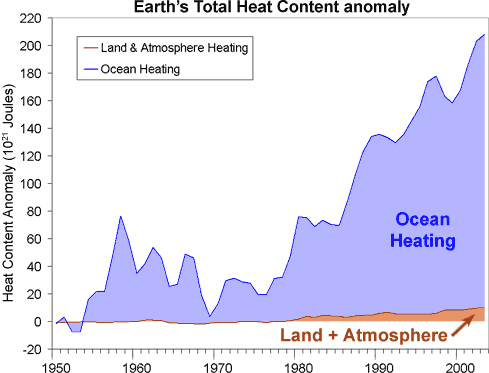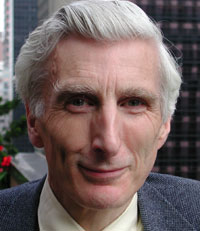 Richard Treadgold has been attempting a sceptical deconstruction of Professor Keith Hunter’s new statement on Science, Climate Change and Integrityfor the Royal Society of New Zealand. It’s not a pretty sight.
Richard Treadgold has been attempting a sceptical deconstruction of Professor Keith Hunter’s new statement on Science, Climate Change and Integrityfor the Royal Society of New Zealand. It’s not a pretty sight.
Professor Hunter should be ashamed of this shoddy piece of research. The lowliest undergraduate would do better than he.
[…]
The senior scientists who’ve made misleading public statements about global warming include Peter Gluckman, David Wratt, James Renwick, Brett Mullan, Andrew Reisinger and Jim Salinger. Their cheeks are smooth and their mouths are smiling but their breath stinks.
Meanwhile, “tenacious” Ian Wishart issued a press release entitled Errors in Royal Society of NZ climate change paper:
The Royal Society of New Zealand has again nailed its sorry little tail to the mast of a sinking global warming ship, with a statement designed to convince news media, politicians and the public that the science behind climate change is sound.
That’s the “sorry little tail” of the nation’s leading scientific society, but Wishart’s not finished. He sums up:
If this is the best evidence the Royal Society of New Zealand can muster in support of climate change, God help the Key administration and his beleaguered science advisor Peter Gluckman, because the people advising National and Gluckman on climate are NIWA and the Royal Society.
New NZ CSC chairman Barry Brill weighed in with his own devastating critique. Prepare to be savaged by a dead sheep:
The paper is unusual in that Professor Hunter lays out the scientific arguments for all to see. But what is even more unusual is the rather obvious fact that the arguments are transparently wrong – to the point of being a serious embarrassment for both your author and your Society.
Treadgold piles it on:
That Hunter presents his statement under the imprimature(sic) of the Royal Society does not imbue it with authority but debases the Society. A mud pie made by the King is still just a mud pie.
[…]
Together they give Professor Hunter nowhere to hide. His egregious statement has no leg to stand on and he can only withdraw it and apologise.
There’s blood on the floor — but it’s Treadgold, Wishart and Brill’s blood clogging up the drains, because in their rush to dismantle Professor Hunter’s statement, they not only get their facts wrong, but they have demonstrated the very point Hunter was making:
Debate, and scepticism are healthy and to be encouraged, as is transparency of information. However, vicious personal attacks on the integrity of experienced scientists, and indeed their critics, serve only to detract from the real issues and are out of place in a rational society.
Let’s see if I can avoid making vicious personal attacks on Treadgold, Wishart and Brill (TWB) as I point out the errors they make…
TWB concentrate their efforts on Professor Hunter’s list of multiple lines of evidence supporting the case that change is occurring, and that action would be prudent. Wishart objects to this section:
“The amount of extra carbon accumulated in the ocean and the atmosphere matches the known quantity emitted by the combustion of fossil fuels.”
Professor Hunter has set a little trap here, and Wishart falls for it:
Except, he appears to have forgotten that there’s a discrepancy between what’s been emitted and how much remains in the atmosphere, known as “the missing carbon sink”. In other words, the Royal Society is wrong. The emissions don’t match.
Brill attempts something similar:
Rebuttal: Oceanic carbon has never been measured, and cannot be estimated. The biosphere also takes up CO2 from fossil fuels (eg forests). There is a well recognised “missing carbon sink”, estimated to be as high as three trillion tonnes per annum.
Treadgold can only manage incredulity, but devotes a whole post to it.
TWB are wrong, and Hunter’s precise point is correct: the measured increase in carbon storage in the ocean and atmosphere is equivalent to the amount of fossil fuels burned since the beginning of the industrial era. Hunter does not mention other anthropogenic sources of carbon — primarily from chopping down forests — but they are roughly in balance with terrestrial carbon sinks (which have been called “missing sinks” because the exact details have proved hard to pin down). The “discrepancy”, as Wishart calls it, is irrelevant to the central message: that the increase in atmospheric carbon is our fault. In fact the “missing sink” and oceans have been doing us a big favour by storing away a very big chunk of our emissions…
Why Brill thinks we can’t measure or estimate ocean carbon content or uptake is a mystery. We’re certainly never going to be able to count all the carbon atoms one by one, but we do understand a very great deal about ocean chemistry — and Keith Hunter is an expert in that field.
TWB also take exception to Hunter’s comments on ocean heat content:
It is also clear that the oceans absorb about 85% of the excess heat resulting from this radiative forcing by greenhouse gases (as well as about 40% of the carbon dioxide). Detailed measurements of the changes in oceanic heat content, and the temperature rise that accompanies this, agree quantitatively with the predicted radiative forcing.
Wishart thinks the oceans aren’t warming much:
Which would be fine, except that the oceans are not warming up much at all, which the Argo project, discussed in Air Con, found, and which has also been detected in another study last year.
Hilariously, the study he quotes (Towards closure of regional heat budgets in the North Atlantic using Argo floats and surface flux datasets, Wells et al, Ocean Sci., 5, 59–72, 2009 [PDF]) says nothing about global ocean heat content, but is concerned with detailed modelling of the heat budget of the North Atlantic.
Wishart moves on to reference Skeptical Science (an “appalling” site, apparently) on ocean heat content, and chooses to quote the final paragraph, but not the complete final paragraph. I wonder why?
Independent analysis seem to indicate that over last half dozen years, the ocean has shown less warming than the long term trend… but nevertheless, a statistically significant warming trend. [my emboldening of the bit Wishart leaves out]
So the oceans continue to warm… Wishart is careful not to state that there’s actual cooling going on (though he’d love you to leave you with that impression) but Brill, however, goes the whole hog.
Rebuttal: Oceanic heat content has decreased steadily since the ARGO programme commenced measuring it in 2004 – despite sharply rising GHG emissions.
More than slightly out of date, Barry. Try reading Wishart’s reference. Can’t you sceptics agree on anything? Meanwhile, all Treadgold can do is recycle Brill’s comments on it being “physically impossible” for the greenhouse effect to heat the ocean. As ocean heat content has been steadily increasing, it would seem that physics is not on Brill’s side. Here’s a graph TWB would probably prefer you didn’t see:

Not only is ocean heat content increasing, it accounts for the vast majority of the energy accumulating in the system, as Prof Hunter says. (Graph comes from Murphy et al, 2009, via Skeptical Science’s excellent post on measuring the earth’s energy imbalance).
Next, TWB get shirty with Hunter’s assertions about sea level rise. Wishart refers to one of his own posts as a reference that allows him to declare:
If he’s trying to suggest sea level increase is unusual or rapidly increasing, then in a word, “rubbish”.
What Hunter is saying is none of those things, but that observed sea level rise is consistent with the observed increase in ocean heat content. In any event, Wishart’s “rubbish” link is to a “CO2 Science” (sceptic site noted for its creative reinterpretation of what papers actually say) report on a paper by Wöppelmann et al. When you read the abstract, you see it refers to a refinement of the sea level data for the last century, which the authors state is in line with earlier work. CO2 Science adds a gratuitous “Hence, it would appear that 20th-century sea level rise has not been in any way unusual, even over the most recent decade of supposedly unprecedented warmth.” Pure invention, in other words. They just made that up, and Wishart swallowed it whole. Par for the course, I suppose, for the deep throat of climate denial.
Brill’s offering repeats his earlier mistake on ocean heat content, but does include this:
Rebuttal: Sea levels have risen by about 18mm/decade for the past 100 years, having extremely poor correlation with either GHG concentrations or fossil fuel use.
Sea level shows an extremely good correlation with ocean heat content and with global temperature, as a recent paper explains. Both of those things are intimately tied into to atmospheric carbon levels and as recent increases are due to human action, you’d have to say that Brill is 100% wrong.
In one respect, and one respect only, does Brill have a point — and it’s a small one. Hunter’s original statement referred to “outgoing solar radiation reflected off the Earth’s surface”. This was an error, missed in proof-reading (or prof-reading), and has since been corrected to “outgoing infra-red radiation”, which renders Brill’s comments on albedo irrelevant (Wishart didn’t notice the obvious mistake!). Brill goes on to say that the “The “simple physics” of 1.5W/m2 is flat wrong.” Which only proves that he’s flat wrong. It’s straightforward if not particularly simple physics, but the basic principles involved have been understood since Fourier and Tyndall first investigated the subject 150 years ago. Perhaps Barry has trouble keeping up with the latest work…
So what are we left with? Three attempted rebuttals of Keith Hunter’s statement on climate change, each of which makes fundamental errors — misleading or misrepresenting the facts — in service of a scurrilous attack on a respected academic and the nation’s top scientific body. Here’s Brill closing his “open letter”:
It will be with a sense of anticipation that we put our fact-based arguments over the very existence of dangerous human-caused global warming to the gatekeepers of our public science academies and at last expect their reasoned response.
What facts are those Barry? The ones you’ve made up, or the ones other people have made up for you? You’re going to have do a lot better than that if you want the world to take you seriously.
There is an important lesson here for the scientific community in New Zealand. The aggressive ignorance on display in the TWB papers is no longer something you can afford to treat with lofty disdain. These people are playing dirty — happy to publicly impugn your work and reputations, based only on their imperfect and ideologically blinkered interpretation of reality, and happy to see their views echoed in Parliament by Rodney Hide and ACT. What’s at stake is not science itself — that great endeavour is quite safe from the intellectually and morally bankrupt attacks of the sort launched by Brill and his pals — but the public perception of science and its value to society. At a time when we will need all our reason to steer a path through a rocky and uncertain future, scientists cannot afford to sit on their hands. Time to hit back, to show the community at large that the age of reason is not dead.
[Zappa]
Like this:
Like Loading...



 Richard Treadgold has been attempting
Richard Treadgold has been attempting 